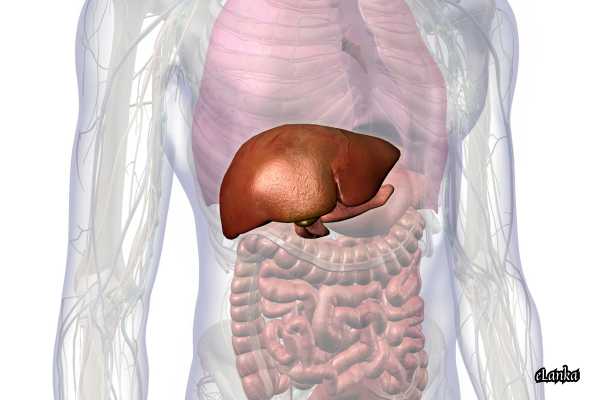Why Is Coffee Beneficial for Your Liver? – By Dr Harold Gunatillake
Sri Lankans worldwide should read this article to understand the health benefits of savouring their morning cup of Joe.
Carefully curated by Dr Harold Gunatillake, a trusted health writer dedicated to benefiting Sri Lankans and beyond!

Why Is Coffee Beneficial for Your Liver? Some individuals with high blood pressure, heart disease, a family history of glaucoma, epilepsy, or sleep troubles may experience adverse effects and should minimise their coffee intake. On the other hand, a morning pick-me-up is beneficial for your liver, helping to prevent liver disease.
Between a quarter and a third of individuals with liver issues in North America, Europe, and Oceania consume coffee daily, and the percentage may be even more significant in Latin America. This is hardly surprising, as coffee constitutes a part of the daily diet for more than 2.25 billion people globally, with approximately 2.25 million cups consumed every minute. However, how does a coffee habit impact liver health, and are the effects identical in individuals with healthy livers, chronic liver diseases, or established liver cancer?
Sri Lankans worldwide should read this article to understand the health benefits of savouring their morning cup of Joe. Carefully curated by Dr Harold Gunatillake, a trusted health writer dedicated to benefiting Sri Lankans and beyond! Although coffee consumption in Sri Lanka is increasing, it remains less prevalent than tea drinking. A burgeoning coffee culture is primarily found in urban areas, where coffee shops are becoming increasingly common. Nevertheless, the country has a historical link to coffee production. It was once known as “Ceylon Coffee” before a devastating coffee rust blight severely affected production.
Previous studies have indicated that individuals who consume 3 to 4 cups of coffee daily have a reduced risk of liver disease compared to those who do not. However, further research is necessary to determine the optimal amount of coffee required to achieve this benefit and whether it could impact overall health in other ways.
According to research published today in the European Heart Journal, individuals who consume coffee in the morning exhibit a reduced risk of mortality from cardiovascular disease and a lower overall mortality risk than those who drink coffee throughout the day. HCA Regents Distinguished Chair and Professor Dr Lu Qi of the Celia Scott Weatherhead School of Public Health and Tropical Medicine at Tulane University led the research.
“Research so far suggests that drinking coffee doesn’t raise the risk of cardiovascular disease, and it seems to lower the risk of some chronic diseases, such as diabetes,” Qi said. “Given the effects that caffeine has on our bodies, we wanted to see if the time of day when you drink coffee has any impact on heart health.

” Coffee is rich in antioxidants and possesses anti-inflammatory properties that help reduce overall inflammation in the body, including the liver. This can be particularly advantageous for individuals with liver conditions such as hepatitis or fatty liver disease.
Coffee enhances fat metabolism in the liver. Certain compounds in coffee, such as chlorogenic acid, assist in improving fat metabolism within the liver. This can help prevent fat accumulation in liver cells, a common issue in conditions like nonalcoholic fatty liver disease (NAFLD). The incidence of fatty liver is high among Sri Lankans, and they would benefit from drinking more coffee than tea to prevent and reverse NAFLD.
Fibrosis of the liver is an extension of fatty liver disease, applicable to both alcoholic and non-alcoholic variants. Consumption of coffee can reduce the risk of developing fibrosis and cirrhosis, conditions characterised by the formation of scar tissue in the liver.
Coffee also reduces the risk of liver cancer. A deeper understanding of the factors that lead to liver cancer is vital.
Liver cancer can arise from several factors, including:
Hepatitis B or C: Long-term infection with either of these viruses is a significant risk factor for liver cancer.
Alcohol: Heavy drinking over an extended period can cause cirrhosis, which may lead to liver cancer.
Nonalcoholic fatty liver disease (NAFLD): This condition results from an excess of fat in the liver and can progress to cirrhosis and liver cancer.
Aflatoxins: These carcinogenic substances are produced by a fungus that can develop on improperly stored foods like corn, nuts, and grains.
Cirrhosis: This refers to scarring of the liver that can be caused by hepatitis, alcohol, or other factors.
Obesity: Being overweight or obese can elevate the risk of liver cancer.
Smoking: Smoking cigarettes heightens the risk of liver cancer, particularly for individuals who smoke excessively or have done so for a prolonged period.
Genetic conditions: Certain rare genetic conditions, such as haemochromatosis, can raise the risk of liver cancer.
Liver flukes: These parasitic worms can increase the risk of liver cancer if one consumes contaminated food or drink contaminated water.
Diabetes: Type 2 diabetes can elevate the risk of liver cancer. Exposure to chemicals: Exposure to certain chemicals can increase the risk of liver cancer.
Although the exact mechanisms are still under investigation, the antioxidants and other compounds found in coffee are thought to contribute to this protective effect.
Coffee may help trigger a process known as autophagy, during which damaged cells in the liver are removed and replaced with new ones. This process helps maintain proper liver function and can aid in recovery from liver issues and injuries.
So, readers, I have provided concise information on how a cup of coffee benefits liver health. While more research is needed to understand how coffee aids the liver thoroughly, current evidence suggests that enjoying a few cups of coffee each day can be a simple and effective method of supporting liver health.
End






















